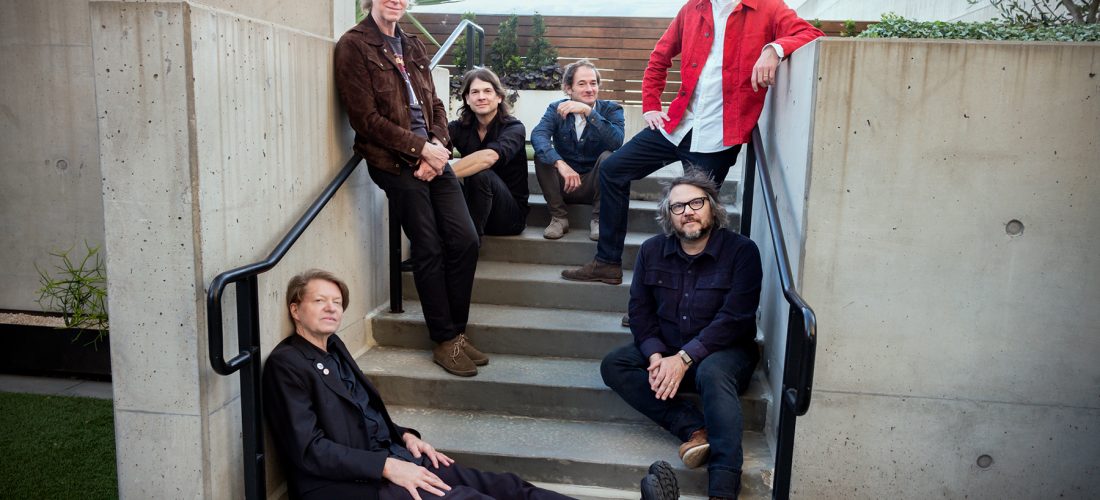Wilco Get Back to the Roots They Never Had on ‘Cruel Country’
Wilco’s first big gesture when they formed in the Nineties was to leave behind the sound of co-founder Jeff Tweedy’s first band, Midwestern alt-country icons Uncle Tupelo. It was a smart move, since at the time even the kind of people who liked iconic Midwestern alt-country were starting to get word that the dread cult of “authenticity” was becoming toxic and freighted. It also helped that the band excelled at other stuff, especially on their sonically rangy 1996 double-LP Being There and 2002 post-rock-garlanded classic Yankee Hotel Foxtrot. These days, the Authenticity Wars have long since cooled, all that cultural baggage has been tossed out the back of the Mystery Train, and Wilco has settled into one of the most easygoing and successful runs of any American band of the last 25 years.
So, the fact that they’ve decided to detour back to the rootsy roots they never wanted isn’t as big a deal as it might have been 10 or 15 years ago. But it’s not nothing, either, as their new record’s ironic title suggests. The band recorded Cruel Country in entirely live takes, the first time they’ve worked that way since their tranquil 2007 highpoint Sky Blue Sky. Their signature stately, richly textured interplay is so automatic at this point that the album doesn’t really feel looser or even all that more casual than previous Wilco records. But it is less polished, like the most beautifully ornamented home recording imaginable. They get closest to “real” country-country on “Falling Apart (Right Now),” a taut shuffle full of bright Bakersfield twang, the gentle waltz “Please Be Wrong,” and “A Lifetime to Find,” a high-stepping honky tonk jaunt with sweet steel guitar and prettily ragged harmony singing.
Mostly, they evoke Americana at its folkiest and most comforting, from the New Morning-era Dylanesque “I Am My Mother,” to the cosmic pastoralism of the Dead-like reveries, “Many Worlds” and “Bird Without a Tail / Base of My Skull.” These songs, all 21 of them, flow by at a languid pace, rolling into dark eddies of moody personal reflection (“Ambulance”), then opening out into warm vistas of guarded generosity (“Tired of Taking It Out on You,” one of Tweedy’s better gently passive-aggressive love songs). At this point listening to Wilco is more a pastime than a passion. It’s like fishing or watching youth sports: if you like it, you can do it for an ungodly long amount of time; if you don’t, the level of tedium can become almost psychedelic. But even for doubters, the consistency and quality here will be stunning.
Despite its length and musical theme, Cruel Country doesn’t at first feel like a grand statement, but Tweedy has subtly laid out the ambitious concept of tying his classic American music to the classical theme of American social and political alienation (this, Uncle Tupelo fans, is where the record truly becomes roots music). “I Am My Mother,” opens the album with images of immigrants on the Southern border and the paranoia they inspire in the morally feeble, while “Hints” reflects on how optimistic notions of American exceptionalism have warped into the extremism of the post-Trump era: “There is no middle when the other side would rather kill than compromise,” Tweedy offers. Throughout, his fragile liberal patriotism stands pat: “Love my country/Stupid and cruel,” he sings on the title track, a line with a clever double meaning.
Lyrically, country music is all about literalism, something that’s rarely been Tweedy’s strong suit. And unlike Bob Dylan or the Dead’s Robert Hunter, he isn’t as adept at (or seemingly much interested in) conjuring our shared mythic past, as he is at finding a way to make his own fractured, mossy interiority feel commonplace and weirdly relatable. If he’s telling the story of America, it’s mainly a tale of everyday people trying to map out broken realities they inherent and barely know how to occupy. “In the hurricane’s eye/People get by/Livin’ their lives,” he mumbles on “All Across the World.” Abstract dejection and patriotic concern get intertwined on the album closing “The Plains,” a somber, acoustic Covid-tinged moper about the loss of motion and possibility in a country that was once a boundless frontier. “Wait, it’s all we ever do,” he laments. What we’re left with, this record seems to tell us, is the terrifying wide open noplace inside our battered skulls.
